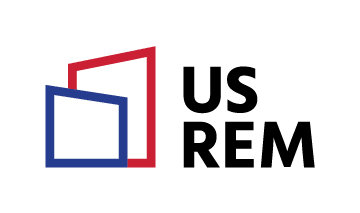If you’re looking to invest in a real estate deal or a crowdfunding website, you may wonder whether you meet the requirements to be considered an “Accredited Investor.” In this blog post, we’ll break down what it takes to be classified as an Accredited Investor and help you determine whether or not you qualify. Remember that the rules surrounding Accredited Investors can change, so staying up-to-date on the latest regulations is essential. Let’s get started!
Why does it matter if someone is an Accredited Investor?
An Accredited Investor meets specific criteria the SEC set forth. These criteria generally relate to income, net worth, and investment experience. The rationale behind having Accredited Investors is that these individuals are assumed to better understand the risks and potential rewards of investing in certain types of securities.
For example, real estate investing generally requires a more significant upfront investment than many other types of investments, and it can also be riskier. As such, the SEC believes that Accredited Investors are better equipped to handle these risks. Consequently, companies seeking to raise capital through the sale of securities are typically only able to do so from Accredited Investors. This limitation ultimately protects non-Accredited Investors from being exposed to investment opportunities that may be too risky for them.
For example, private placements are limited to 35 non-accredited, so accredited are not counted, and the fundraising can be more significant. Also, some investment opportunities and platforms are ONLY open to Accredited Investors.
What Can Accredited Investors Do?
The SEC classifies Accredited Investors as persons who are qualified to invest in complicated or sophisticated securities. They qualify for this access by meeting at least one of the following requirements: income, governance status, size of assets, net worth, or professional experience.
Certain conditions must be completed to get accreditation. Unregistered security sellers may only sell to approved investors, who are judged financially capable of assuming the risks.
Accredited investors are permitted by law to acquire unregistered securities from regulatory agencies such as the SEC. Numerous corporations elect to sell securities directly to this group of authorized investors. Because this ruling exempts corporations from SEC registration requirements for securities, it may save them a substantial amount of money. This sort of issuance of shares is known as a private placement. It may expose these Accredited Investors to a substantial amount of risk. Companies offering private placements must guarantee that these individuals are financially secure, seasoned, and aware of dangerous endeavors. Additionally, Accredited Investors have access to hedge funds, angel investments, venture capital, and transactions involving complicated and higher-risk assets and instruments, which are usually not open or accessible to the general public.
Prerequisites for Accredited Investors

The laws governing Accredited Investors vary by country and are often outlined by a responsible or local market regulator. In the U.S., an Accredited Investor is an individual who meets certain well-defined criteria set forth by the SEC. You can find all of the details of the criteria as to who the SEC considers an Accredited Investor under Rule 501 of Regulation D.
What are the Professional Requirements to be an Accredited Investor?
The SEC and other regulatory organizations want to ensure that anybody making these potentially high-risk transactions is financially literate, which is why these professional standards exist.
To meet the professional criteria for accreditation, you must be or possess one of the following:
- Certain professional diplomas, certificates, or designations (e.g., if you hold a Series 7, 65, or 82 license).
- “Knowledgeable employees” of a private fund.
- Investment advisers registered with the SEC and states.
- Officers or general partners (GP) of the corporation selling the securities.
- Any “family client” of a “family office” who meets the criteria for accreditation.
Related: Good Advice from Experienced Commercial Real Estate Investors
Who Qualifies as an Accredited Investor?
As of now, there is no government verification method that identifies your accreditation status. The organizations in which you will invest may request basic financial documents such as tax returns to verify your position as an Accredited Investor.
Depending on the nature of the investment, you may need to supply tax records and/or a statement of your status from your CPA or attorney.
There are a few different ways to verify that you are an Accredited Investor. One way is to show that you have earned an income of more than $200,000 (or if combined with your spouse, the amount is $300,000) in each of the previous two years and that you expect to earn the same or more in the current year.
Another way is to show that you have a net worth of more than $1 million (again, either individually or combined with your spouse), excluding the value of your primary residence.
Finally, you can also qualify as an Accredited Investor by meeting certain criteria set forth by the SEC, such as being a registered broker-dealer or investment advisor or having certain professional certifications. If you are unsure whether you meet the requirements, you can always consult with a registered securities professional.
How to Become an Accredited Investor?
There are a few different ways to become an Accredited Investor. The most common way is to simply have a high net worth or income. However, there are also a few other options. For example, some people become Accredited Investors by training to, and working in, certain professions, such as becoming a registered broker-dealer or investment adviser.
Related: How To Become An Accredited Investor
Opportunities for Accredited Investors
There are several exclusive opportunities available for Accredited Investors. One common example is investing in real estate projects that are not open to the general public. These can include everything from new developments to commercial properties. Accredited investors may also have access to private equity and venture capital deals, as well as hedge funds and other alternative investments. While these opportunities can be very lucrative, it’s important to remember that they also come with a higher degree of risk.
Real estate investing is another great option for those looking to diversify their portfolio and earn a steady stream of income. While there are many different ways to invest in real estate, Accredited Investors should consider platforms such as SecondRE, a platform that allows investors to purchase and sell residential and commercial real estate.
The Bottom Line
An Accredited Investor is someone who meets certain criteria set forth by the U.S. Securities and Exchange Commission (SEC). To be an Accredited Investor, an individual must have a net worth of at least $1 million or an annual income of at least $200,000.
Accredited investors are generally considered to be sophisticated investors who are better able to make informed investment decisions. As such, they typically enjoy a number of benefits, including access to more investment opportunities and more favorable terms. In addition, Accredited Investors often have a greater degree of control over their investments. For these reasons, it is important to consult with a financial advisor before making any investment decisions.
If you found out that you are an Accredited Investor, you can sign up for SecondRE. Our marketplace enables investors to buy and sell fractions of cash-generating residential and commercial real estate properties, with the sponsors’ blessing. Click here to find out more.
Related: Best Real Estate Investment Options for Accredited Investors








